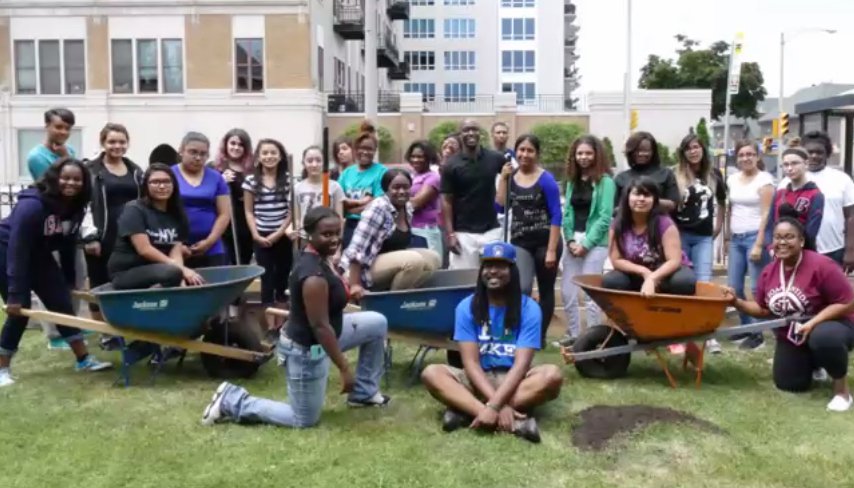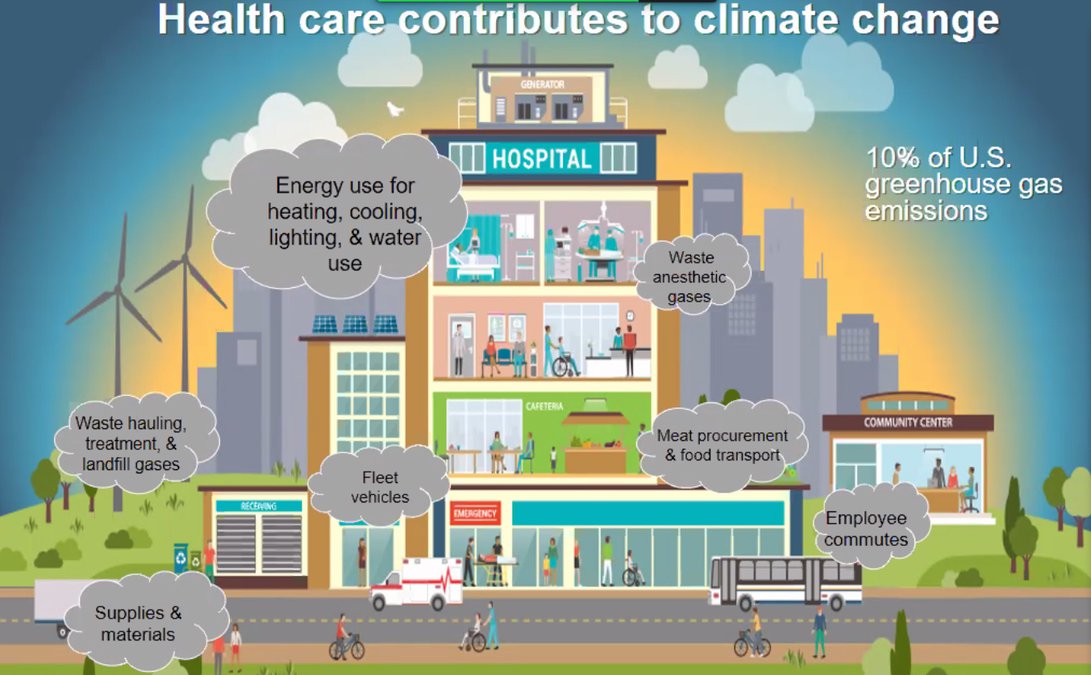WISCONSIN - In order to solicit public input about the impact of climate change affecting citizens around Wisconsin, the Governor’s Climate Change Task Force will hold five virtual public hearings in June and July.
The second of those virtual public hearings, held on Saturday, June 27, attracted 300 participants from all corners of the state. The next three hearings will take place on Tuesday, July 7; Thursday, July 9; and Wednesday, July 15. For an agenda, or to find information about how to join the hearing, go to https://climatechange.wi.gov/Pages/MeetingPublicHearingMaterial.aspx.
The format for the hearings is to start with educational presentations, and then to break down into smaller groups where feedback and discussion is made possible. In the small groups, participants were asked for comments about the presentations made, how climate change is impacting them in their area of the state, and what solutions participants think the state should focus on.
“The purpose of these public hearings is for the State of Wisconsin to understand the will of the people of the state,” Lieutenant Governor Mandela Barnes said. “We also need to maintain a focus on the ways in which people of color and poor people have been and will be disproportionately impacted by climate change.”

Indigenous knowledge
The first presentation was made by Margaret Ann Noodin, a member of the Ojibwe tribe of Minnesota. Noodin works with the Institute for American Indian Education, in partnership with UW-Milwaukee.
“Indigenous knowledge needs to be understood as a form of science in understanding of the natural world,” Noodin said. “It is a form of science that can lead to community healing.”
Noodin says that much of her work focuses on forging connections between tribes. She said there are 513 recognized indigenous nations in the United States, and 168 that speak the Ojibwe language.
“Indigenous ethics guide not only reconciliation between humans, but also between humans and the planet,” Noodin explained. “Many tribal legal systems are starting to put in place legislation and constitutional amendments to recognize the Rights of Nature.”

Groundwork Milwaukee
The second presenter was Deneine Powell of Groundwork Milwaukee. Powell started her presentation by explaining what her inspiration is to do the work she does.
“One of our students was able to take a camping trip to Yellowstone National Park,” Powell said. “When he got there, and experienced the quiet and the night sky, he told that it was like he had received a gut punch from God.”
Powell said that as a result of that experience, the young man had found out where he wanted to be, and what he wanted to do with his life. His experience also changed me, and made me realize that I want to do this work.
“The most important word for conservation is exposure,” Powell said. “We can’t protect what we don’t know.”
According to Powell, Groundwork Milwaukee works not only on climate change, but also conservation, environmental issues, and helping area communities to rise to meet their challenges. They bring focus not only to environmental issues, but also issues of environmental justice. The majority of their work is in diverse and economically disadvantaged neighborhoods.
“Our three foci are community, food and water,” Powell said.
Their focus on community includes public health, environmental education, blue green job training, and climate adaptation advocy. Their focus on water includes education, advocacy and policy. Their focus on food includes food security through climate adaptation by means of urban agriculture and community gardening.
“A key feature of our program is the Green Team Program,” Powell said. “We believe that our program is replicable statewide in providing local food for communities.”
Students enrolled in the Green Team Program help to install green infrastructure such as rain gardens, manage 120 gardens and several urban farms located in urban food deserts, and Brownfields clean up of sites that can be repurposed.
“Our urban food production efforts produced nine tons of food in 2019,” Powell said.
In addition, Groundwork Milwaukee runs their ‘EarthLab’ program. The EarthLab is a two-acre outdoor climate action park that advances a new model of experiential environmental education for the youth of Harambee and Riverwest communities, and across Milwaukee.


Health Care Without Harm
The third presentation was delivered by Jeff Rich from Health Care Without Harm (HCWH). Rich was instrumental in developing Gundersen Health System’s ‘Envision Program,’ which resulted in a 55 percent energy efficiency improvement. This was achieved through implementing a portfolio of renewable energy projects in wind, solar, biogas, biomass and geothermal. As a result, Gundersen was the first U.S. health system to achieve energy independence in October of 2014.
HCWH was founded in 1996 to support the health care sector in reducing its carbon footprint, building climate-smart and resilient hospitals and communities, and mobilizing health care’s influence and purchasing power to transition to a sustainable, healthy and just future.
“Health care accounts for 10 percent of U.S. carbon emissions,” Rich explained. “HCWH believes that the health system needs to cure disease without contributing to disease.”
Climate change, Rich said, has contributed to the increase in vector borne diseases such as malaria, dengue fever, hantavirus, Lyme disease, West Nile virus, Zika, and more. He said it has also led to the increase in severe flash flooding events, which can endanger lives and create flood-related health problems.
“We have an affordable health care crisis in the United States,” Rich said. “When the health care sector has high energy costs, those costs are passed along to patients.”
Rich said that the typical hospital has a 25-30 percent energy waste. To compound the problem, Rich pointed out that these issues are more difficult for small rural hospitals to address.
“Health is wealth,” Rich told the hearing participants. “Studies have shown a correlation between the economic health of a community and the health of its population. So, more homegrown, clean energy is a huge opportunity!”
According to Rich, some climate change mitigation recommendations from HCWH include:
• expanded energy efficiency programs - expansion of Focus on Energy incentives for electronic controls and B.A.S.
• increased net metering caps
• allow third party ownership/financing of onsite solar
• create a renewable natural gas market – 60 percent of hospital energy use is for heating needs
• incentives for electric vehicle fleet conversion and infrastructure – hospitals and clinics could make good charging locations
Public input
The group of 300 participants was broken down into three smaller groups, and the Independent-Scout was placed into Group Two. Olivia Shanahan was the facilitator of the group, and the following issues and ideas were brought forward in that group:
• fight the Cardinal-Hickory Line
• invest in infrastructure to harvest rain water so that the world’s dwindling supply of potable water can be reserved for drinking water
• develop carbon markets
• evaluate the state’s sewer infrastructure to ensure that it can function in the face of increased large rainfall events and flash flooding
• fight the Enbridge Pipeline
• prepare for an increase in not only extreme rain events, but also in extreme heat and humidity
• help farmers make the investment in conservation to protect groundwater
• support family farming versus CAFOs
• create policies and funding for conversion to electric vehicles
• support small dairy farmers and fight the CAFOs that are overproducing and putting them out of business
Wenona Wolfe facilitated Group One, and reported the following climate change concerns had been discussed in that group: work toward equity by ensuring that people of color have a voice at the table; combat air pollution and the increase in asthma; flooding and extreme weather; plastics in the environment; create more green spaces; transform the food system; incentivize more grazing; carbon fees; restore local control; and electric vehicle charging stations.
Raj Kamal facilitated Group Three, and reported the following climate change concerns had been discussed in that group: food production; training for the youth; equity in housing; landfills; green jobs; and renewable energy.





